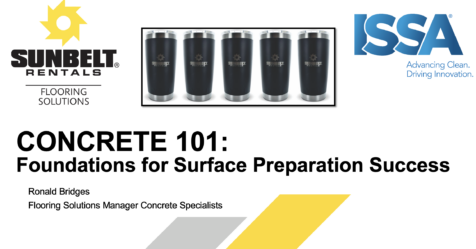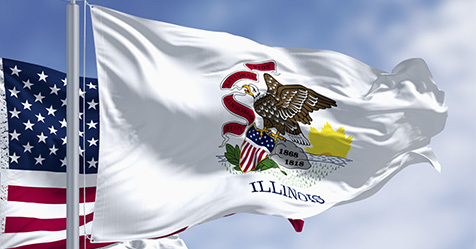Professional cleaning and management certification is important now more than ever, but perhaps the lack of in-person or on-site training options has stopped you from pursuing it in the past year. Let me be clear: success or failure in your job often correlates to the level of training and certification you have obtained.
Certification in your field gives you the confidence to do the right thing because you have the knowledge and experience to back it up. This is especially important when you are immersed in an ever-changing and challenging situation like a pandemic. The cleaning industry of the future will be a combination of traditional solutions and new technological advances. Now is not the time to fall behind.
Through certification, businesses can advance to higher levels in the cleaning industry. Certification helps organizations market their services, select contractors, create job descriptions, and evaluate candidates for employment, as well as evaluate current employees and motivate them to enhance their skills and knowledge.
Employees who earn certifications benefit too. Certification in a field shows competency, commitment to the profession, and is a pillar of job advancement.
You may be wondering how to find a certification program that works for you and your operation. Your best option will likely be an integration of several different certifications from the types described in this article.
Quality assessment certifications
Quality assessment allows organizations to establish a baseline and track ongoing improvement with stakeholders. Certification programs centered on quality should focus on work processes, building appearance, logistical setup, cleaning tolerance, and cleaning efficacy.
Example: CMI Accredited Auditing Professional
Workloading certifications
Workloading is the foundation of a successful cleaning plan that ensures a level of cleanliness needed to meet customer expectations. A workloading strategy provides an opportunity to rebuild the current cleaning culture to one of efficiency, innovation, balanced workload, and high-performance thinking. These improvements benefit frontline cleaning workers as well as individuals who are tasked with making—and defending—custodial staffing levels.
Example: CMI Certified Workloading Specialist
Custodial employee training certifications
Cleaning staff need certification specific to the various tasks they are performing and equipment they are using. At a minimum, certification topics should cover: customer service, the chemistry of cleaning, basic cleaning of above-floor surfaces, basic cleaning of hard floor surfaces, basic cleaning of carpeted floor surfaces, and basic cleaning of restrooms and shower rooms. Advanced certification should include: advanced cleaning of hard floor surfaces, advanced cleaning of carpeted floor surfaces, and advanced cleaning of above-floor surfaces.
Example: CMI Certified Custodial Technician
Logistics and support certifications
To successfully support a cleaning organization, you need certification that provides knowledge of the technical skills and training programs specific to your establishment. The certification should focus on teaching methods to improve your team’s efficiency and professionalism. As a business owner, you can have your workers undergo certification, or hire a certified consultant who will improve your company’s results and shepherd you through challenging times.
Examples: CMI Certified Professional Trainer, CMI Consulting Program
Leadership training certifications
The custodial profession today not only commands respect but also requires a high degree of knowledge and skill. There are several reasons for the new “image,” including the realization that custodians are critical to an organization’s efficiency and a facility’s healthy environment. Custodians working post-pandemic require the knowledge of modern equipment, effective chemicals, and new cleaning techniques that certification brings.
Example: CMI Certified Custodial Supervisor
No matter which type of certification you choose, achieving it involves documenting specific job experience and successfully completing the appropriate courses and their associated examinations. Whether you complete certification on-site or virtually, do not allow your certification and pursuit of knowledge to go unchecked. Certification is essential in any professional endeavor to gain, maintain, and document credible professional experience.
The greatest asset that any organization has is its people. Invest in your organization through certifications and you’ll be recognized as a true professional.




